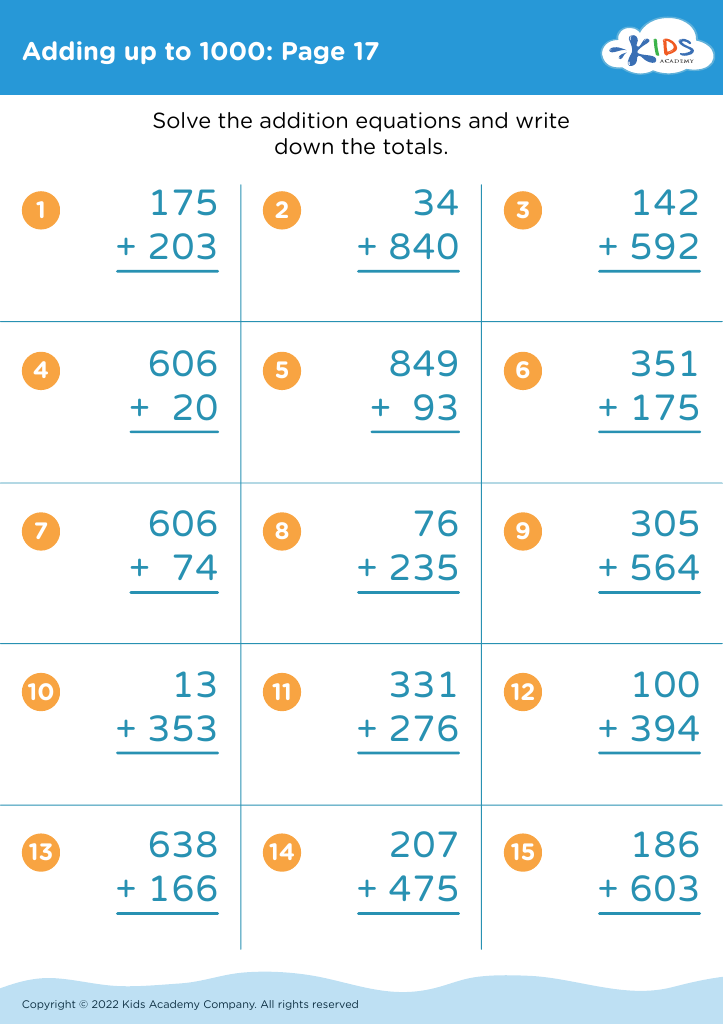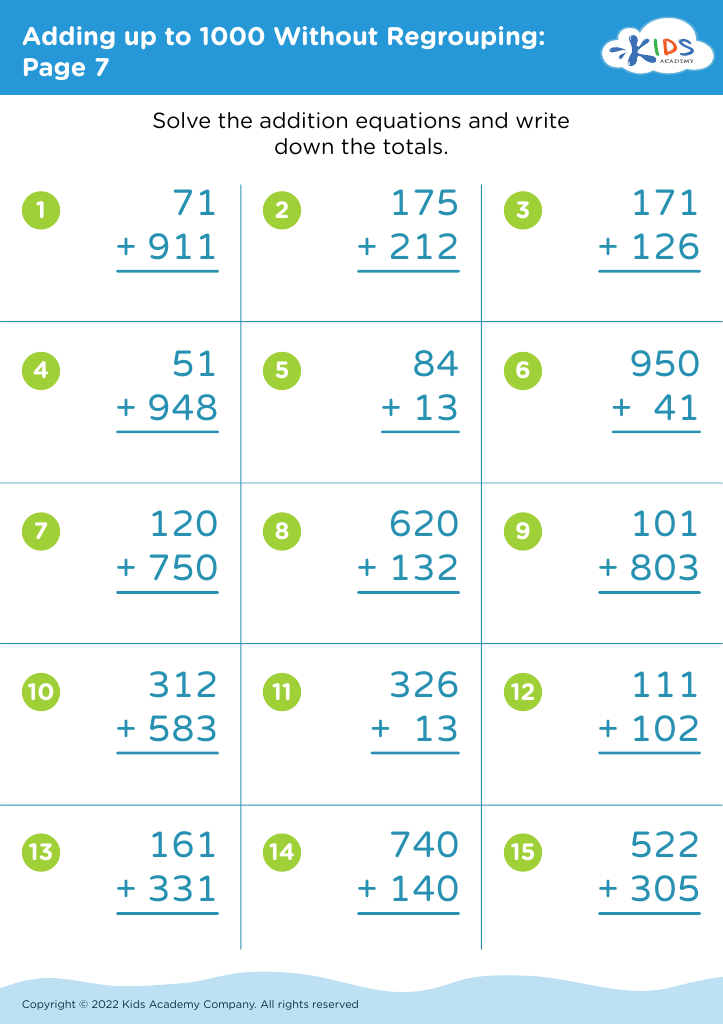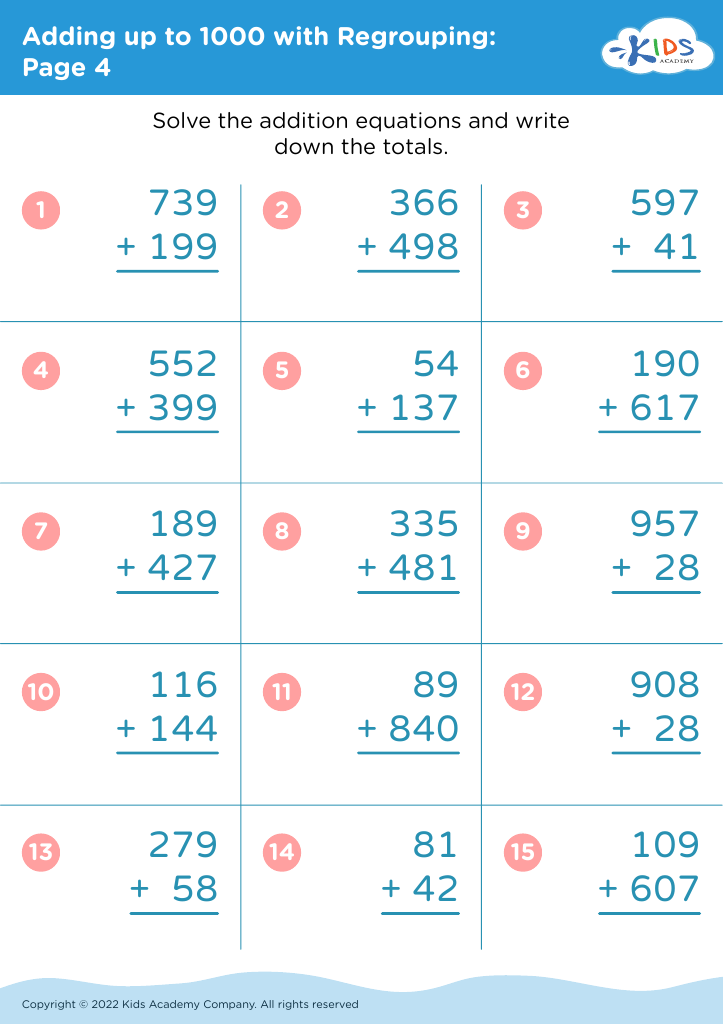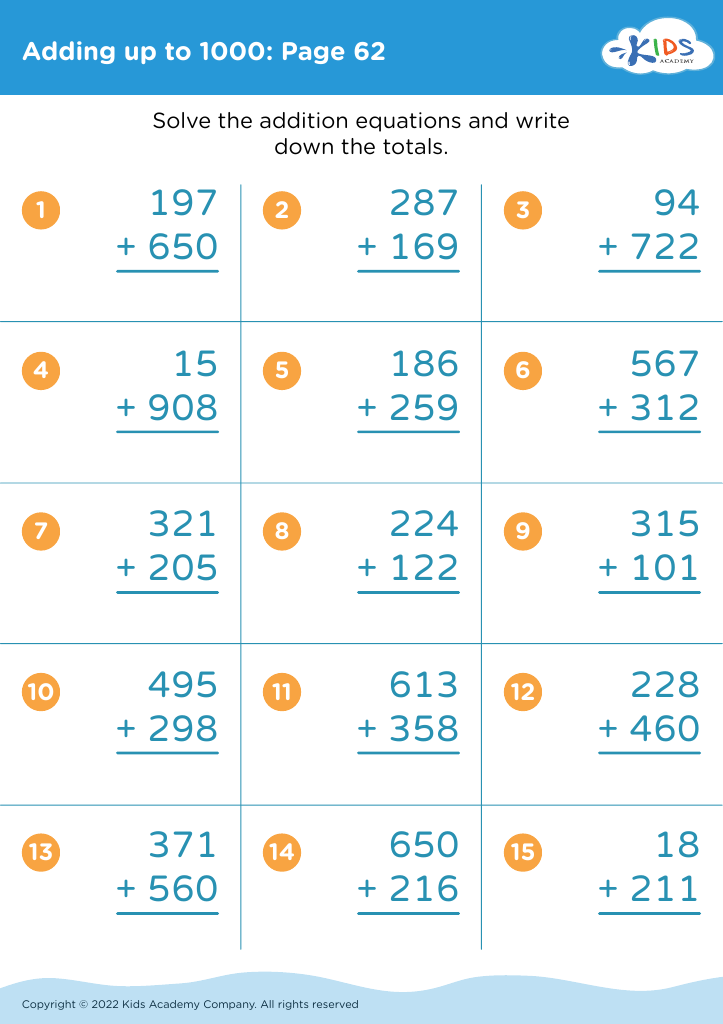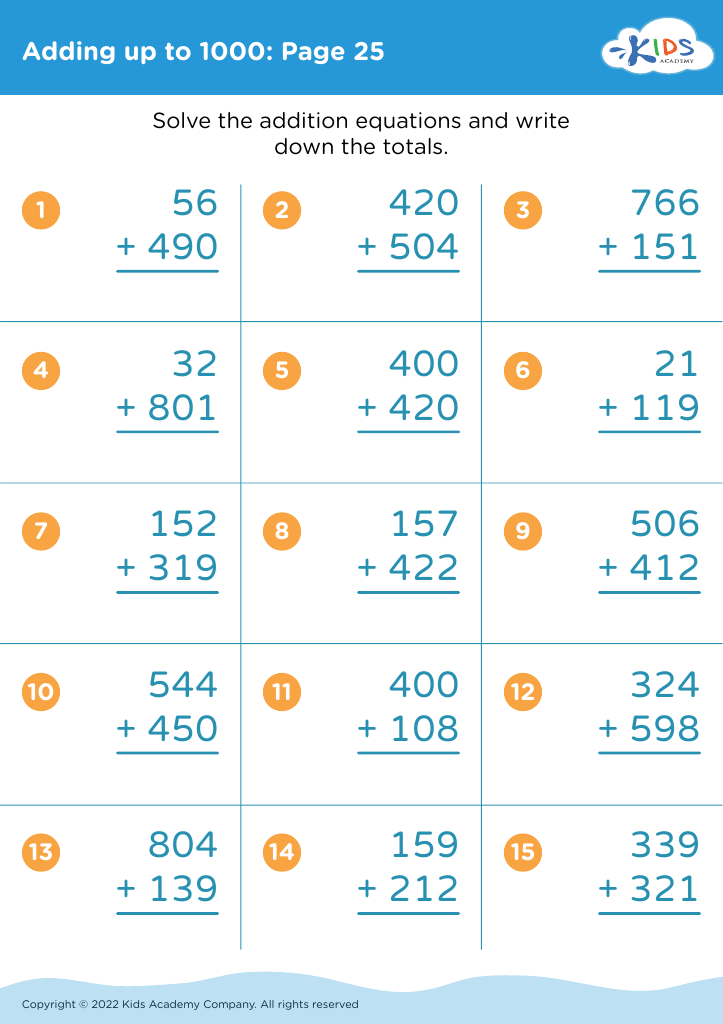Fraction comparison Adding up to 1000 Worksheets for Ages 8-9
13 filtered results
-
From - To
Boost your child's mathematical skills with our "Fraction Comparison Adding up to 1000 Worksheets for Ages 8-9". These expertly crafted printable worksheets are designed to help third graders grasp the fundamental concepts of fraction comparison and addition up to 1000. Engaging and child-friendly, our activities aim to reinforce number sense, encourage critical thinking, and enhance problem-solving abilities. Tailored to align with common core standards, our worksheets build confidence and mastery in young learners. Ideal for both classroom learning and at-home practice, discover the perfect educational tools to empower your 8-9-year-olds today!
Understanding and comparing fractions is a fundamental math skill that plays a crucial role in a child's overall mathematical development. When children between the ages of 8 and 9 learn how to compare fractions and perform math tasks like adding up to 1000, they strengthen their number sense and improve their problem-solving abilities. By mastering these skills early, children gain confidence and a solid foundation, making advanced math concepts more accessible and less intimidating as they progress through school.
Fractions, in particular, help students understand the part-whole relationship, equivalencies, and develop proportional thinking. Comparing fractions lays the groundwork for more complicated concepts such as ratios, percentages, and algebra. On the other hand, adding up to 1000 enhances students' understanding of place value, addition and subtraction fluency, and numeric relationships.
Parents and teachers alike should care about fraction comparison and addition because these skills are essential for academic success in mathematics. Moreover, these concepts come into play beyond the classroom, fostering logical reasoning applicable in everyday life, such as in cooking, shopping, and even personal finance. Therefore, providing robust support for learning these skills makes mathematics more relatable, enjoyable, and sets up children for a lifetime of critical thinking and problem-solving.

